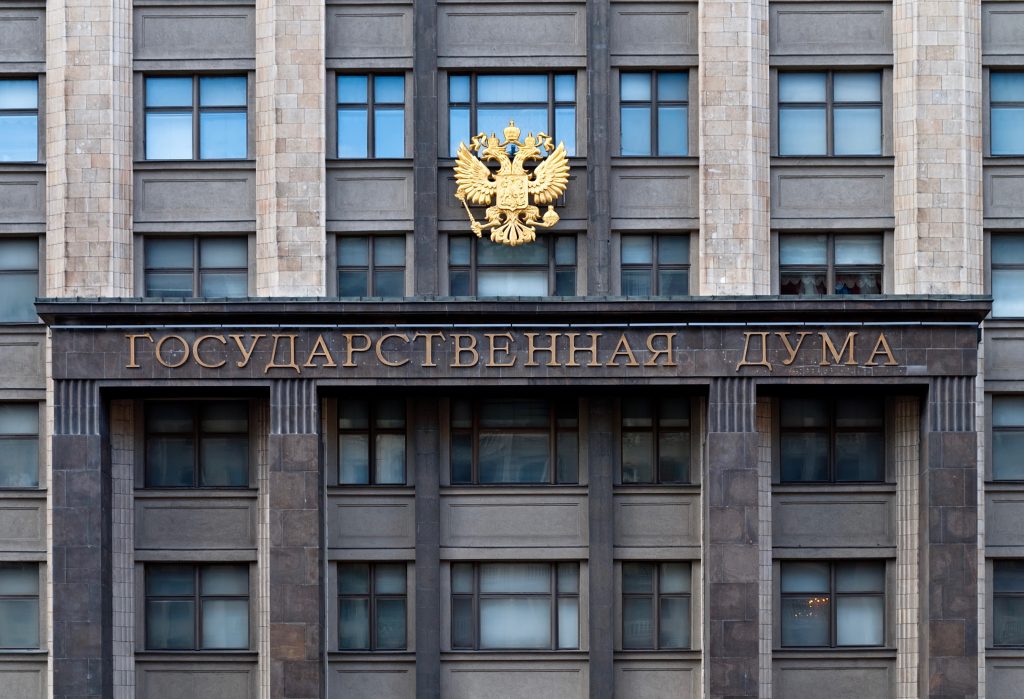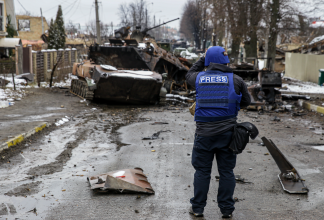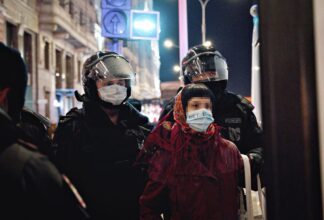Russia: Amendments to ‘Foreign Agents’ Law – A Death Sentence for Civil Society

Civil Rights Defenders expresses grave concern over proposed package of draft laws to Russian legislation regulating association. The amendments could mean a death sentence for unregistered initiatives and independent non-governmental organisations.
In November 2020, the Russian government proposed amendments to broaden its notorious 2012 ‘foreign agents’ legislation, which concerns domestic organisations and branches of foreign NGOs operating in Russia. The amendments will 1) increase the burden on organisations as well as the government’s control over their operations; 2) increase the risk for individual activists; and 3) contravene Russia’s constitution and its international obligations to ensure freedom of association.
More Bureaucratic Burdens for NGOs
One of the new amendments dictate that NGOs labelled as ‘foreign agents’ will be required to provide the Ministry of Justice with information on their programmes and the implementation thereof, including their activities, public events, and finances, in advance and on an annual basis. The Ministry of Justice will in turn decide whether an organisation can implement its planned programmes. If the Ministry prohibits implementation, the NGO must comply, or be forced to close by court order.
In addition, unregistered associations or initiative groups can be labelled ‘foreign agents’ and would then be required to report activities and finances for government approval. Therefore, Russian authorities will have even more control to prevent groups, such as the independent monitoring association GOLOS, from implementing their activities, including observation missions of the parliamentary elections slated for 2021.
According to Russian civil society representatives, the language in the amendment is not specific as to how the Ministry will make such determinations over NGO activities. For example, an organisation working on political prisoners’ support might be forced to stop this activity because the state asserts that there are no political prisoners in the country.
Human Rights Defenders at Greater Personal Risk
The amendments will increase the personal risks on Russian human rights defenders and civil society activists by establishing an ‘individuals serving as foreign agents list.’ The list will contain personal data – the scope of which is unclear in the law – and be publicly available. The bill proposes that individuals, regardless of their citizenship, can be recognised as ‘foreign agents’ if they engage in political activities and receive money, an asset, or ‘organisational and methodological help’ from foreign sources.
As such, individuals will be required to report their ‘political activity’ and how they spend their foreign funds to the Ministry of Justice every six months. In the case of a ‘foreign agent’ organisation whose employees retain a salary from foreign funds, the employees must report their financials. Such demands constitute a violation of the right to privacy.
Additionally, the amendments expand the already controversial concept of ‘foreign source’, which has been used to recognise an entity or individual as a ‘foreign agent’. The amendments include not only foreign governments, citizens, or organisations but also Russian citizens and organisations that have an affiliation with a foreign citizen or stateless person. The only safeguard to avoid the label and consequences of ‘foreign agent’ in the country will be to accept state funds exclusively.
Independent Expert: Amendments Are Unconstitutional
According to Maxim Krupsky, an independent legal expert, who analysed the legislation, the proposed bills are unconstitutional and violate the principle of legal certainty i.e. demands of the law must be clear enough for adherence and implementation, as understood by the Russian Constitutional Court and the European Court of Human Rights.
The terms used in the bills are vague and have no legal determination, meaning the provisions could be applied arbitrarily, unjustly, and unreasonably. And organisations required to meet the demands of the new legal provisions will have no legal remedy to dispute a decision by the Ministry of Justice.
According to the legal expertise of the draft bill, the proposed legislation is ‘excessively repressive and provides unreasonably broad discretion to enforcement institutions <…> which may lead to the gross violations of (association and individual) rights as well as the balance of public and private interests’.
Given the threat to civil and political liberties, Civil Rights Defenders calls on the State Duma of the Russian Federation to retract these amendments to the ’foreign agent’ legislation. These further restrictions under Russia’s foreign agent law are detrimental to freedom of association and to civil society, which is a key component of a functioning democracy. Guarantees of such freedoms are the core part of Russia’s international commitments on human rights.


